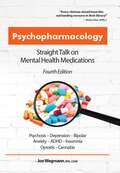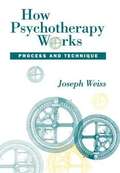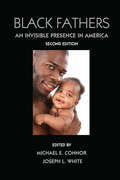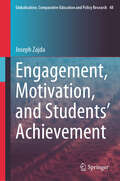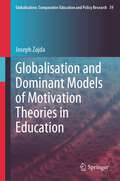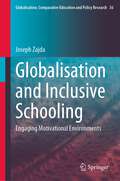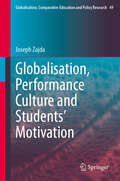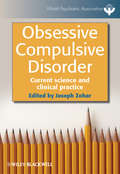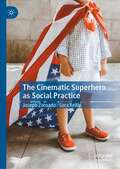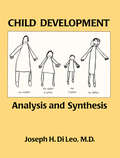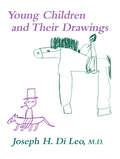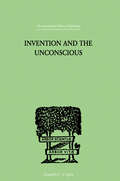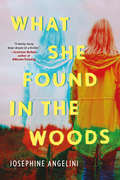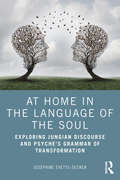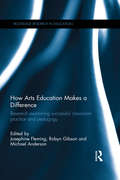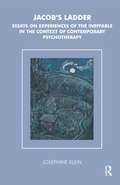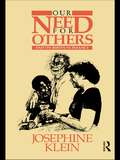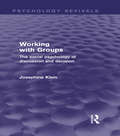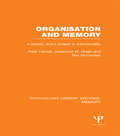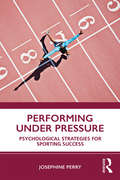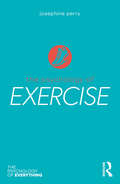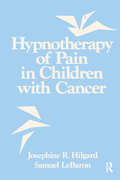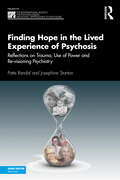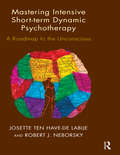- Table View
- List View
Psychopharmacology: Straight Talk on Mental Health Medications
by Joseph WegmannA comprehensive professional resource for mental health treatment – now in it’s fourth edition! Since 2009, Psychopharmacology: Straight Talk on Mental Health Medications has been the go-to desk reference for professionals who want to expand their knowledge of pharmacological treatment on mental health issues. Author Joe Wegmann draws on over three decades of clinical experience in psychopharmacology and psychotherapy, to provide his unique perspective on psychotropic medication management. He is nationally known for the practical, relevant, and insightful psychopharmacology information he presents in his books, columns, articles, blogs, and workshops – and this edition is no exception. Packed with detailed discussions of clinical diagnoses, as well as the effectiveness of current treatments, including complementary and alternative medicine, this fourth edition provides the reader a useable blend of the science and art associated with contemporary best practices.
How Psychotherapy Works: Process and Technique
by Joseph Weiss<P>In the landmark volume, THE PSYCHOANALYTIC PROCESS, Joseph Weiss presented a bold, original theory of the therapeutic process. Now, in HOW PSYCHOTHERAPY WORKS, Weiss extends his powerful theory and focuses on its clinical applications, often challenging many familiar ideas about the psychotherapeutic process. <P>Weiss' theory, which is supported by formal, empirical research, assumes that psychopathology stems from unconscious, pathogenic beliefs that the patient acquires by inference from early traumatic experiences. He suffers unconsciously from these beliefs and the feelings of guilt, shame, and remorse that they engender, and he is powerfully motivated unconsciously to change them. According to Weiss's theory, the patient exerts considerable control over unconscious mental life, and he makes and carries out plans for working with the therapist to change his pathogenic beliefs. He works to disprove these beliefs by testing them with the therapist. The theory derives its clinical power not only from its empirical origin and closeness to observation, and also from Weiss's cogent exposition of how to infer, from the patient's history and behavior in treatment, what the patient is trying to accomplish and how the therapist may help. By focusing on fundamental processes, Weiss's observations challenge several current therapeutic dichotomies--"supportive versus uncovering," "interactive versus interpretive," and "relational versus analytic." <P>Written in simple, direct language, Weiss demonstrates how to uncover the patient's unconscious plan and how the therapist can help the patient to carry out his plans by passing the patient's tests. He includes many examples of actual treatment sessions, which serve to make his theory clear and usable. The chapters include highly original views about the patient's motivations, the role of affect in the patient's mental life, and the therapist's basic task. The book also contains chapters on how to pass the patient's tests, and how to use interpretation with the patient. Dr. Weiss also provides a powerful theory of dreams and demonstrates how dreams can be utilized in clinical practice. <P>This distinguished volume is a major contribution that will profoundly affect the way one conceptualizes and practices therapy. Theoreticians, investigators, and clinicians alike will find it enlightening reading.
Black Fathers: An Invisible Presence in America, Second Edition
by Joseph White Michael E. ConnorThis book offers a broader, more positive picture of African American fathers. Featuring case studies of African-descended fathers, this edited volume brings to life the achievements and challenges of being a black father in America. Leading scholars and practitioners provide unique insight into this understudied population. Short-sighted social policies which do not encourage father involvement are critically examined and the value of father engagement is promoted. The problems associated with the absence of a father are also explored. The second edition features an increased emphasis on: the historical issues confronting African descended fathers the impact of health issues on Black fathers and their children the need for therapeutic interventions to aid in the healing of fathers and their children the impact of an Afrikan-centered fathering approach and the need for research which considers systemic problems confronting African American fathers community focused models that provide new ideas for (re)connecting absent fathers learning tools including reflective questions and a conclusion in each chapter and more theory and research throughout the book. Part I provides a historical overview of African descended fathers including their strengths and shortcomings over the years. Next, contributors share their personal stories including one from a communal father working with underserved youth and two others that highlight the impact of absent fathers. Then, the research on father-daughter relationships is examined including the impact of father absence on daughters and on gender identity. This section concludes with a discussion of serving adolescents in the foster care system. Part II focuses on the importance of a two-parent home, communal fathering, and equalitarian households. Cultural implications and barriers to relationships are also explored. This section concludes with a discussion of the struggles Black men face with role definitions. The book concludes with a discussion of the impact of adoption and health issues on Black fathers and their children, and the need for more effective therapeutic interventions that include a perspective centered in the traditions and cultures of Afrika in learning to become a father. The final chapter offers an intervention model to aid in fatherhood. An ideal supplementary text for courses on fathers and fathering, introduction to the family, parenting, African American families/men, men and masculinity, Black studies, race and ethnic relations, and family issues taught in a variety of departments, the book also appeals to social service providers, policy makers, and clergy who work with community institutions.
Engagement, Motivation, and Students’ Achievement (Globalisation, Comparative Education and Policy Research #48)
by Joseph ZajdaThis book analyses discourses of the use of engagement and motivation in schools globally. It focuses on the overall impact of engagement on teachers, students’ motivation, students’ well-being, and standards. It examines the role of engagement and motivation impacting teachers and students in the classroom, and the overall impact of inclusive classroom models to improve their performance in the classroom. The book analyses topics such as cultural identities and engagement, students’ personalities and their impact on learning, the role of intelligence in learning, social learning, engagement in collaborative groups, and teachers’ role in promoting engagement in the classroom. The book contributes in a very scholarly way, to a more holistic understanding of the nexus between globalisation, dominant models of motivation, and students’ engaging learning environments, and their academic achievement.
Globalisation and Dominant Models of Motivation Theories in Education (Globalisation, Comparative Education and Policy Research #39)
by Joseph ZajdaThis book analyses discourses of the use of motivation theories in schools globally. It focuses on the overall impact of motivation theories on teachers, students’ engagement, well-being, academic excellence, standards, equity and global competitiveness. It examines the role of motivation theories impacting on teachers and students in the classroom, and the overall impact of cognitive, social cognitive, affective and psycho-motor domains, used to motivate students to improve their performance in the classroom.The book analyses such topics as Behaviourism, a major motivation model to improve performance in schools, cognitive theories for creating engaging learning environments, including achievement motivation, Social cognitive theories for improving engagement and motivation, social constructivism to improve students’ motivation and academic achievement, humanistic approaches for creating effective motivational environments, the use of discourse analysis in understanding motivation, and dominant values used in motivation in inclusive schools. This book contributes in a very scholarly way, to a more holistic understanding of the nexus between globalisation, dominant models of motivation, and students’ engaging learning environments, and their academic achievement.
Globalisation and Inclusive Schooling: Engaging Motivational Environments (Globalisation, Comparative Education and Policy Research #36)
by Joseph ZajdaThis book analyses discourses of inclusive schooling and engaging motivational environments globally. It focuses on the student’s identity, belonging, performance in the classroom, and the significance of cognitive, cultural, emotional and social capital to student’s academic achievement. The book discusses and evaluates the shifts in methodological approaches to inclusive and engaging learning environments. It analyses topics such as the students’ cultural identity and achievement, motivational strategies for creating engaging learning environment, the use of constructivist pedagogy for critical thinking, social constructivism, and values education in the classroom. The book also analyses and evaluates the shifts in methodological approaches to globalisation and inclusive schooling globally, and their impact on performing schools. It contributes in a very scholarly way, to a more holistic understanding of the nexus among globalisation, comparative education research, inclusive schooling and engaging learning environments.
Globalisation, Performance Culture and Students’ Motivation (Globalisation, Comparative Education and Policy Research #49)
by Joseph ZajdaThis book analyses education policy trends that affects performing culture, academic excellence and global competitiveness in schools. It focuses on students’ cultural identities and engagement, inclusive schooling, eliminating discrimination and discriminatory practices in the classroom, and relevant values education. One of the major effects of cultural and economic forces of globalisation is that schools and school leaders, like other educational organisations, having modelled their goals and strategies on the entrepreneurial business model. They are compelled to embrace the corporate ethos of efficiency, accountability, performance, and profit-driven managerialism. This corporate ethos reflects a dominant neo-liberal ideology, which exerts a powerful influence on major discourses of democracy, equality, social justice, and education, both locally and globally. By examining the education policy shifts in the use of major discourses concerning performing culture and education, this book offers a comprehensive synthesis of the intersecting and diverse discourses of globalisation, cultural diversity, performing culture, and education. It provides innovative ideas concerning the future directions for authentic models of globalisation, performance culture and students’ motivation.
Obsessive Compulsive Disorder
by Joseph ZoharA clear summary of what is known about a highly prevalent and debilitating disorder that affects nearly as many people as does asthma. Expert authors review the biological basis for the disorder and describe both pharmacological and psychological approaches to treatment.
The Cinematic Superhero as Social Practice
by Joseph Zornado Sara ReillyThis book analyzes the cinematic superhero as social practice. The study’s critical context brings together psychoanalysis and restorative and reflective nostalgia as a way of understanding the ideological function of superhero fantasy. It explores the origins of cinematic superhero fantasy from antecedents in myth and religion, to twentieth-century comic book, to the cinematic breakthrough with Superman (1978). The authors then focus on Spider-Man as reflective response to Superman’s restorative nostalgia, and read MCU’s overarching narrative from Iron Man to End Game in terms of the concurrent social, political, and environmental conditions as a world in crisis. Zornado and Reilly take up Wonder Woman and Black Panther as self-conscious attempts to reflect on gender and race in restorative superhero fantasy, and explore Christopher Nolan’s Dark Knight trilogy as a meditation on the need for authoritarian fascism. The book concludes with Logan, Wonder Woman 1984, and Amazon Prime’s The Boys as distinctly reflective fantasy narratives critical of the superhero fantasy phenomenon.
Child Development: Analysis And Synthesis
by Joseph di LeoFirst published in 1996. Routledge is an imprint of Taylor & Francis, an informa company.
Young Children And Their Drawings
by Joseph di LeoPublished in 1996, Young Children and Their Drawings is a valuable contribution to the field of Psychotherapy.
Invention And The Unconscious (International Library Of Psychology Ser.)
by Joseph-Marie MontmassonThis is Volume X in a series of twenty-one in a collection on Cognitive Psychology. Originally published in 1931, in this book, M. Montmasson is concerned to demonstrate a fact of the first importance, easily overlooked. The fact is this, that human inventions in the widest sense of the word, are products of the unconscious.
What She Found in the Woods
by Josephine AngeliniFor readers of psychological thriller books and wilderness survival stories, a gripping thriller about Magda who's desperate to get over a scandal at her New York private school. Fans of We Were Liars and A Good Girl's Guide to Murder will find themselves swept up in What She Found in the Woods!This is Magda's last chance. Recovering from a scandal at her elite New York City private school that threw life into a tailspin, she is shipped off to live with her grandparents in the Pacific Northwest for the summer.Medicated and uninspired, Magda spends her days in a fog wandering the forest behind the house. But then she stumbles upon Bo. He's wild and free, and he can see the real her. Magda starts believing she might be able to move on from her past and feel something again. But there's more to this sleepy town than she thought. And what Magda finds in the woods near Bo's forest home is the beginning of a whole new nightmare...Perfect for those looking for: Mental health books for teens An engaging mystery with an unreliable narrator Young adult thriller books A novel to keep you on your toes if a teen killer is out in the woods Suspense books
At Home In The Language Of The Soul: Exploring Jungian Discourse and Psyche’s Grammar of Transformation
by Josephine Evetts-SeckerLanguage has a primary importance in Jungian psychology and its practice. C. G. Jung saw every act of speech as a psychic event. Even the "worker" words in language, like prepositions or conjunctions, carry particular archetypal energies, working dynamically and daimonically in the conduct of transformational narrative and realizing both personal and collective purposes. This book aims to deepen our consciousness of psyche’s speech as it occurs in our professional discourses, in the psychoanalytic encounter, in dreams, fairy tales, myths and poetry. Vividly exploring the grammar of psyche, we are urged to constantly kindle and rekindle our engagement with language.
How Arts Education Makes a Difference: Research examining successful classroom practice and pedagogy (Routledge Research in Education)
by Michael Anderson Josephine Fleming Robyn GibsonThis book presents ground-breaking research on the ways the Arts fosters motivation and engagement in both academic and non-academic domains. It reports on mixed method, international research that investigated how the Arts make a difference in the lives of young people. Drawing on the findings of a longitudinal quantitative study led by the internationally renowned educational psychologist Andrew Martin, the book examines the impact of arts involvement in the academic outcomes of 643 students and reports on the in-depth qualitative research that investigates what constitutes best-practice in learning and teaching in the Arts. The book also examines drama, dance, music, visual arts and film classrooms to construct an understanding of quality pedagogy in these classrooms. With its evidence-based but highly accessible approach, this book will be directly and immediately relevant to those interested in the Arts as a force for change in schooling. How Arts Education Makes a Difference discusses: The Arts Education, Motivation, Engagement and Achievement Research Visual Arts, Drama and Music in Classrooms Technology-mediated Arts Engagement International Perspectives on Arts and Cultural Policies in Education This book is a timely collation of research and experiential findings which support the need to promote arts education in schools worldwide. It will be particularly useful for educationists, researchers in education and arts advocates.
Doubts and Certainties in the Practice of Psychotherapy
by Josephine KleinThis book is a collection of occasional papers on the practice of psychotherapy for pre-qualification students and for more experienced professionals, focusing on the development of some psychoanalytic theories into their social and historical context.
Jacob's Ladder: Essays on Experiences of the Ineffable in the Context of Contemporary Psychotherapy
by Josephine KleinThis book considers mysticism – a world of ineffable experience – to see if it might have anything to teach those in the therapeutic world, invites the reader to look at newer ways of psychoanalytic thinking, and uses writers of the past to help illuminate contemporary issues.
Our Needs for Others and Its Roots in Infancy
by Josephine KleinIn this original and highly readable book Josephine Klein provides a detailed picture of how young infants experience life and how this lays the foundations for later personality structures.
Working with Groups: The Social Psychology of Discussion and Decision (Psychology Revivals)
by Josephine KleinOriginally published in 1963, this book was one of the first to explore group process and working with groups. The introductory chapter tells us that working with groups requires three skills: and understanding of theory, a knowledge of its application, and trained experience in its use. It goes on to discuss these points, helping the reader towards an understanding of group processes and making decisions in groups. This title is an early example of author’s explorations of groups and group work, which were to be a major factor in the establishment of group-work practice in Britain over the following years.
Organisation and Memory: A Review and a Project in Subnormality (Psychology Library Editions: Memory)
by Peter Herriot Roy McConkey Josephine M. GreenOriginally published in 1973, this volume looks at the organisation of memory data in, what at the time was termed, ‘mental handicap’. The first part surveys recent work in this important area, giving a general account of experiments and findings. The second part reports a particular piece of research on memory in people with learning difficulties, then called ‘subnormal individuals’. Very much of its time, in terms of the terminology, this was an important book for anyone concerned with people with intellectual disabilities and for experimental psychologists involved with the processes of memory.
Performing Under Pressure: Psychological Strategies for Sporting Success
by Josephine PerryPerforming Under Pressure is an essential resource on improving sporting performance in high-pressure situations. Perry’s work guides coaches and athletes through nine key elements of the sporting mindset to help athletes to perform at the highest standards, even under the most pressurized of situations. This valuable read includes empirically-based advice on areas such as embracing competition; building confidence, concentration and focus; maintaining emotional control; learning from and coping with failure or injury; being braver; and being able to push harder. Perry also provides 64 strategies to support each sporting mindset, offering not just the evidence as to why they work but exactly how to implement them. This book uniquely offers those supporting athletes a toolkit of sport psychology strategies and interventions in a way that is evidence-based, accessible and engaging, whether you are starting out studying sport psychology, on a sports science course, or are a coach of many years' standing, for both elite and amateur athletes.
The Psychology of Exercise (The Psychology of Everything)
by Josephine PerryWhy should we exercise? When should we exercise? Why don’t we exercise? The Psychology of Exercise separates fact from fiction, delving into key theories, ideas, and the impact of life stages on when, why, and how we exercise. It explores the barriers and motivators to exercise for children, teenagers, adults, and retirees as well as for those living with a chronic health condition. It shows how when we personalise activity programmes, exercise becomes a life-affirming, life-lengthening habit. Using real-life case studies from those who work with exercisers at all levels, The Psychology of Exercise shows us the huge value that comes from exercising in every stage of our lives.
Hypnotherapy Of Pain In Children With Cancer
by Josephine R. Hilgard Samuel LeBaronPresents findings on the effects of hypnosis in reducing anxiety and pain in children with cancer and suggests that hypnotherapy offers real promise of pain relief without drugs.First published in 1991. Routledge is an imprint of Taylor & Francis, an informa company.
Finding Hope in the Lived Experience of Psychosis: Reflections on Trauma, Use of Power and Re-visioning Psychiatry (The International Society for Psychological and Social Approaches to Psychosis Book Series)
by Patte Randal Josephine StantonThis book offers first-person accounts of the experience of psychosis from the inside and the outside, through the eyes of two doctors, one of whom has experienced psychosis and both of whom have worked for decades in the field of psychiatry. Underpinned by rigorous academic analysis using an evocative duo-ethnographic approach, the book explores the cultural and subcultural influences from childhood onwards – both traumatic and resilience-building – that have shaped their lives. Both authors reflect on strategies they learned early in life for dealing with challenges, each managing to function at a high level while avoiding awareness of their vulnerability. They reflect on the potential dangers of using their expertise and position of power in psychiatry simply to diagnose mental illness and prescribe medication. The differences and similarities in the authors’ stories provide a productive tension highlighting the complexities of this paradigm shift that is happening in psychiatry. Written in the form of two interacting memoirs, this book is of great interest to researchers, clinicians, and practicing psychologists, as well as a general audience with interest in psychosis.
Mastering Intensive Short-Term Dynamic Psychotherapy: A Roadmap to the Unconscious
by Robert J. Neborsky Josette Ten Have-De LabijeThis book evolved from the First International Meeting of the Experiential Dynamic Psychotherapy Association on intensive short-term dynamic psychotherapy. It will help readers to make use of the conscious working alliance with the patient to increase the unconscious part of the working alliance.
